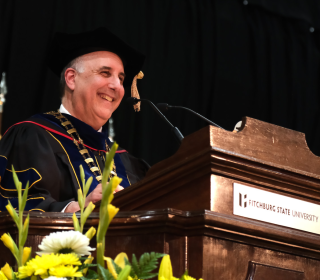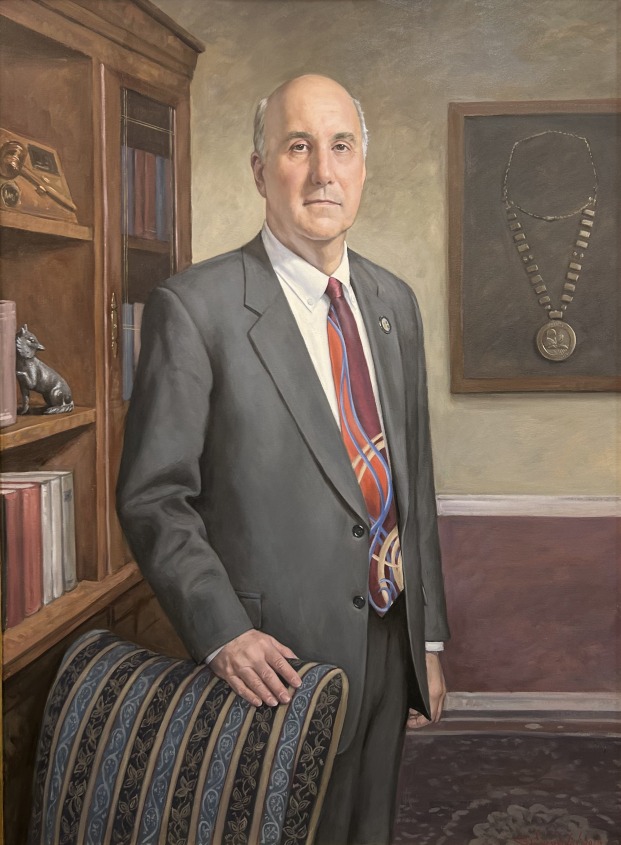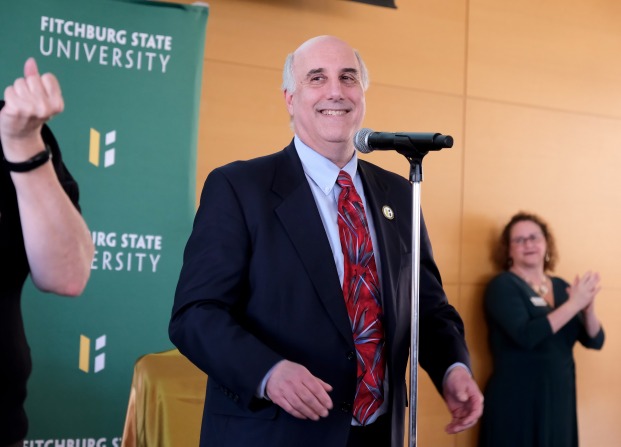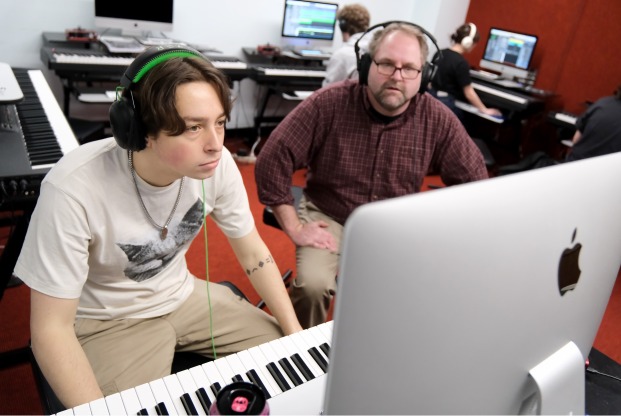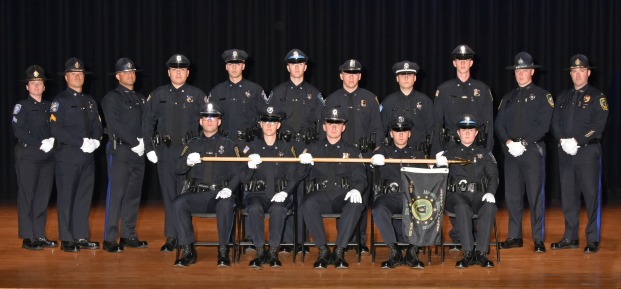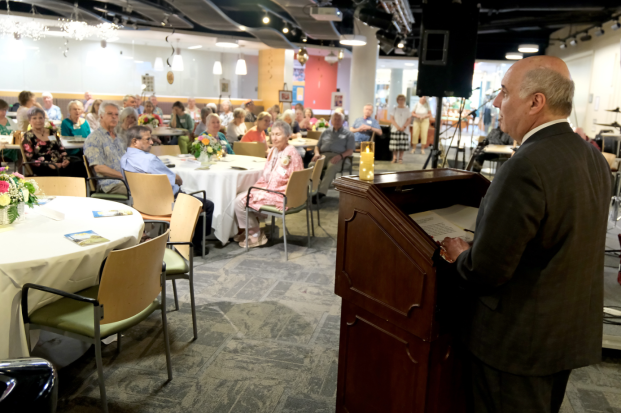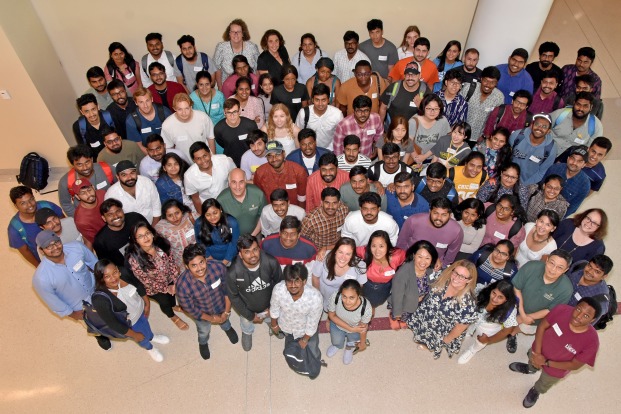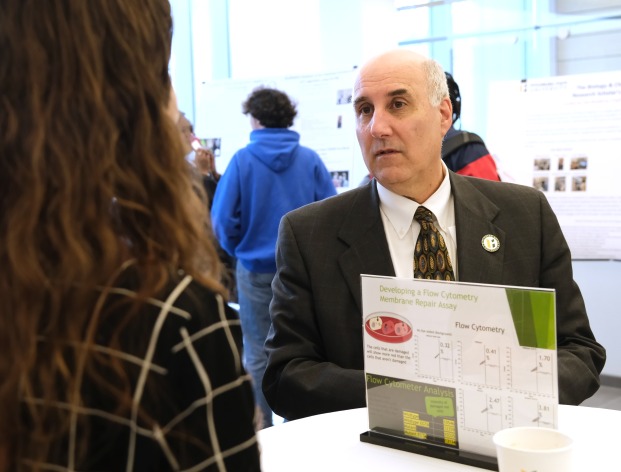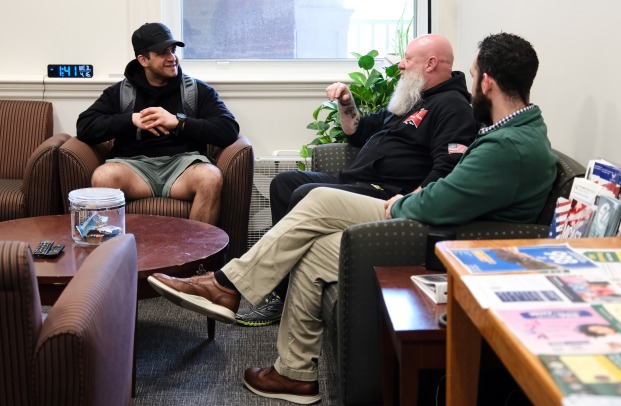When Richard S. Lapidus made his first visit to campus as a presidential finalist in the fall of 2014, he was struck by the sense of community that he observed in the students, faculty, librarians and staff members he encountered.
“I got back from that trip and told my wife, ‘There’s something special about this place,’” he recalled. “The sense of community and shared purpose was really palpable.”
Over the next nine years, he would learn those first impressions were accurate.
President Lapidus retired in June after nine years at Fitchburg State, an era in which the university navigated a global pandemic and its aftermath and saw the launch of numerous new academic programs. Efforts to support students through an increased sense of belonging and a commitment to diversity, equity and inclusion were undertaken. And the university’s connection to its host community was deepened through strategic investments and robust collaborations.
“All of these projects were the result of a shared commitment and collective effort,” President Lapidus said. “Our students and the wider community will be the enduring beneficiaries.”
Allison Turner '24 spent the last two years as student representative to the Board of Trustees. "President Lapidus has always been our biggest cheerleader," she told fellow students at a celebration of his tenure this spring. "He never misses an opportunity to rave about the great things our students and university are doing. He encourages board members to be more present on campus and to see the amazing work our students are doing."
Turner, who also acknowledged the dedication that Lisa Lapidus showed in supporting her husband and the university as a whole, presented a commemorative pen to the outgoing president along with a statue of a falcon. "At our graduations, we often speak about our students soaring into the world after leaving Fitchburg State," Turner said. "As President Lapidus leaves the nest of our university to soar into retirement, we hope this statue serves as a reminder of the impact he has had on our community."
Alumni Association President Dawn Morton ’90 said President Lapidus recognized and nourished the special relationship between the university and its graduates.
"His support in alumni ventures is solid, understanding that connecting alumni back to the university as well as forging a relationship between alumni and current students for mentorship and a network of support so students can have a solid base for success with a Fitchburg State degree," she said. "He has a true comprehension of the impact that alumni have had after their time at the university, as well as the faculty and administration that have continued to uphold the school’s reputation."
First Impressions
Martin F. Connors Jr., President and CEO of Rollstone Bank & Trust, was a member and chair of the university’s Board of Trustees, and served on the presidential search committee in 2014-15.
“Rich was the first candidate we met when we were at the Hilton at Logan Airport and candidates were being flown in and out,” said Connors, who recalled sitting next to another board member for that first interview. “We met Rich and I slipped her a note that said, ‘He’s the one.’”
Connors liked Lapidus’ level-headed demeanor and background in marketing, knowing the CEO of an organization like Fitchburg State has to be ready to be its primary salesman.
Connors said Lapidus’ legacy will include the commitment to improving downtown Fitchburg and engagement with the business community through the North Central Massachusetts Chamber of Commerce and other entities. “Rich was a very good corporate citizen for someone who had no previous ties to this area,” he said.
Board of Trustees Chair C. Deborah Phillips joined the board the same year President Lapidus reported for duty. She was struck by his quiet but agile approach to the issues that faced Fitchburg State, from tackling structural budget deficits to addressing the costs of deferred maintenance.
“His intuitive and gracious leadership will be missed,” Phillips said. “That is his style, and that’s what he brought. That will be part of his legacy.”
She said she also appreciated how quick he was to share the credit for institutional progress. “Rich never says ‘I,’ he says ‘we,’” Phillips said. “He has quietly expressed his enormous appreciation and faith in his entire administrative staff. He is the epitome of the good coach and the good manager in that way.”
More than $40 million in capital investments in the campus were completed by President Lapidus and his team. These include the conversion of the Carmelita Landry Arena at the Wallace Civic Center into a state of the art strength and conditioning center, and significant renovations to Percival Hall, Thompson Hall and the McKay Complex. The university’s capital efforts were underscored by a commitment to environmental stewardship that resulted in Fitchburg State being recognized by the Massachusetts Department of Energy Resources with the Public Entity Leading by Example Award. Another $25 million project undertaken in collaboration with the state Division of Capital Asset Management and Maintenance created a new electrical distribution system across campus.
Beyond the physical improvements, President Lapidus’ tenure included significant changes to the university’s academic program. Among these was a revamped general education curriculum. The result of years of planning, the program was designed to prepare creative and critical thinkers who integrate and communicate learning from a variety of disciplines and experiences in ways that enhance civic, personal, and professional lives.
The program launched in Fall 2021, creating a foundational experience for incoming students grounded in the values of a liberal arts and sciences education, introducing them to skills and ways of thinking they can apply in a wide range of contexts.
Beyond the general education program and first-year experience, President Lapidus’ tenure included the creation of several new degree programs designed to meet evolving career paths and continue Fitchburg State’s history as an educational innovator. These include new majors launching this fall in creative arts therapies and creative arts enterprise, providing students with strong interdisciplinary skills to respond to high-needs sectors of the statewide and regional economies. The university also launched a bachelor’s program in digital media innovation, preparing students for employment in continually evolving and intersecting fields including media/journalism, social media and content development.
The School of Graduate, Online and Continuing Education also expanded its offerings during the past nine years, including an online master’s degree in construction management that was created to fill a vital need in the Commonwealth. “Our program will provide professionals with the comprehensive academic and technical skills necessary for them to meet the needs of regional, national, and global industries,” President Lapidus said when the program launched. “This innovative program builds upon the strong foundation of our Engineering Technology Department, which has evolved for more than a century to respond to changing workforce needs.”
To help spread the word about Fitchburg State’s continued innovation, President Lapidus oversaw a restructuring of its marketing efforts, including a redesigned website, digital magazine, expanded social media presence, and updated admissions materials including an animated virtual tour.
To Serve and Protect
This spirit of innovative programming to support community needs spurred the development of another landmark program for Fitchburg State, its groundbreaking police program. Developed in close collaboration with the Massachusetts Municipal Police Training Committee, the program allows students to complete degrees in criminal justice as well as certification to work in municipal police departments across Massachusetts and other New England states in the course of five years.
Days after completing their bachelor’s degrees, program participants begin an accelerated, 17-week police academy which results in their certification to work in municipal police departments in Massachusetts and other New England states. Almost all of the program’s graduates have secured police jobs even before graduation.
The foundation of the program was laid before President Lapidus’ arrival, but he was there for the opening day of its first academy in 2018 and has attended each academy since. The program has drawn national and international attention as the policing profession evolves.
“We are particularly proud of this program,” President Lapidus told recruits’ family members at a recent orientation program. “What makes this program unique is its combination of policing theory and practice, embedded in the curriculum. The world of policing is changing, and we believe we’re providing a new way of thinking about the profession.”
A College Town
President Lapidus embraced the special relationship between the campus and the community in which it resides. In addition to serving on boards including the Fitchburg Art Museum and Sizer School, he worked to strengthen ties between the university and its local and regional elected leaders through collaborations and community sponsorships.
Those partnerships were symbolized by the university’s purchase of the long-vacant theater block on Main Street in 2016. The university invested millions to renovate space within the theater complex for use as a game design studio and an interdisciplinary ideaLab. The studio serves students in the university’s game design program completing their capstone projects, working in teams to create market-ready games. The ideaLab, operated in conjunction with NewVue Communities, has provided consulting services and financial assistance exceeding $3.3 million for more than 250 entrepreneurs. Plans for the future of the theater itself–which has been empty since 1987–continue to be developed. The university's adult education program, ALFA, marked its 20th anniversary this spring.
Global Perspectives
President Lapidus’ tenure has included the growth of Fitchburg State’s global reach, both through increased numbers of students traveling abroad and a rise in the number of international students studying on campus (in addition to an already robust online international cohort).
The university offers a robust series of faculty-led study abroad programs. Just this summer, more than 30 Fitchburg State students visited Europe on faculty-led voyages that span numerous academic disciplines. Much of the cost was covered by more than $82,000 in scholarships provided by the Fitchburg State University Foundation, which also sponsored $18,000 in faculty stipends for the voyages.
In recent years, students and faculty have studied in Costa Rica, Croatia, Germany, Greece, Ireland, Italy, Japan, the Netherlands, Peru, Poland, and Spain, and programs are scheduled for Argentina and Malawi in the coming years.
“We know the impact that study abroad has on broadening students’ perspectives as global citizens, and I am grateful to the university supporters who have brought these life-changing experiences within reach for our students,” President Lapidus said.
Fitchburg State has also opened the campus to international students, with a large and growing population enrolling in on-campus programs.
Nine years ago, according to Director of International Education Nelly Wadsworth, there were 70 international students studying at Fitchburg State. That number grew to more than 400 by this year.
“Dr. Lapidus's vision and ability to tackle various challenges, including budget issues, have been remarkable,” Wadsworth said at a ceremony for international graduate students this spring. “On behalf of the international students, study abroad students, and the Office of International Education, I extend our deepest gratitude to you, Dr. Lapidus, for your unwavering support of the international programs. You have made Fitchburg State a family for everyone, creating a welcoming environment where international students feel important and integral to the Fitchburg State community.”
Among this year’s international graduates was Ali Raza, who completed a master’s degree in computer science. The native of Pakistan was selected as the 2024 recipient of the Graduate Student Leadership Award.
“I think I’m accepting this award on behalf of every international student who has dared to dream of a better future,” Raza said in his remarks to graduates. “We may have come from different corners of the globe, but here, at Fitchburg State University, we have found a home—a place where diversity is celebrated, and dreams are nurtured.”
Upheaval and Recovery
Recognizing the growth potential of Fitchburg State’s already celebrated digital programs, President Lapidus oversaw the expansion of the university’s online footprint, creating a larger pool of national and international students. Graduate programs in business, nursing and education continue to attract strong interest, across the U.S. and the world.
The online model took an unexpected turn in 2020 with the arrival of the global pandemic. That January, schools and colleges started planning for the possibility that a viral outbreak in China could spread to the U.S. Fitchburg State’s first campus memorandum on the coronavirus was issued at the end of the month, and focused on general preventative measures that community members could take, including frequent handwashing and staying home when feeling sick.
The global situation escalated quickly. In close consultation with other college and university presidents, the decision was made to switch to remote instruction after the spring recess in March. That decision meant a wholesale rethinking of university operations. Residence halls were emptied. Summer study abroad trips were canceled. And commencement exercises were put on hold.
“Because of his foresight in upgrading the university’s technology platforms in the years prior to the COVID crisis, Fitchburg State was uniquely positioned for the virtual teaching and learning environment essential for the campus community to function during those uncertain days and months,” recalled Phillips, the Board of Trustees’ chair.
Measures undertaken by the university kept the campus from experiencing any major COVID outbreaks, with far fewer cases than the surrounding community or many other Massachusetts campuses. Working closely with state leadership and in consultation with public health experts, university operations slowly returned to normal.
Making the Grade
Even as the university navigated those challenges, it continued to make strides supporting students. A comprehensive strategic planning process launched in 2019 that included voices from across campus constituencies. The resulting plan, approved by the state in late 2020, was developed around the unifying concept of education justice, describing a belief that access to a quality education is a vehicle for providing students with equity of opportunity. The plan describes a commitment to an education that is transformational for the individual and society as whole, since it is committed to empowering students to overcome economic, social and cultural inequities.
As Vice President for Student Affairs Laura A. Bayless shared at a celebration of President Lapidus’ tenure this spring, Fitchburg State demonstrated consistent success in fostering social mobility among graduates. This includes ranking in the top 100 institutions in the country on the Social Mobility Index in 2023, and consistently scoring among the highest in Massachusetts for several consecutive years in the U.S. News and World Report rankings.
“These metrics look at our institutional success in enrolling and graduating economically disadvantaged students, and it has been proven again and again that a college degree leads to higher lifetime earnings,” Bayless said.
President Lapidus also emphasized the university’s work promoting diversity, equity, inclusion and belonging.
“During President Lapidus’ tenure, the campus has been making strides toward our vision of education justice,” Bayless said. “Our efforts have focused on several pathways at the same time: representational diversity among students and employees; dedicated efforts by academic departments on curricular innovations and changes as well as open educational resources; systemic work in the areas of policy/practice audits and response to incidents; regular collection, dissemination, and use of data; and ongoing training for employees and student leaders.”
That concentrated effort resulted in increased racial and ethnic diversity among Fitchburg State’s students, faculty and staff during his tenure.
“A rich and robust process for administrative offices to conduct policy audits and identify bias in our systems has been created and used by many departments,” Bayless said. “Even in the Summer of 2020, a time when the world and our campus were consumed with COVID, President Lapidus supported the priority of bringing together our students, employees, and alumni to talk frankly about the lived experiences of people of color at Fitchburg State, and for the campus community to listen and do better.”
Early in his tenure, President Lapidus outlined a commitment to serving student veterans and achieving formal Military Friendly status, a designation the university was awarded every year of his presidency. During the past academic year, Fitchburg State enrolled 150 student veterans.
The spirit of continued improvement also included full renewal for Fitchburg State’s accreditation through the New England Commission of Higher Education (NECHE) during President Lapidus’ watch, the culmination of a process that included a comprehensive self-study and continued follow-up by campus departments.
In its renewal letter in 2022, NECHE leadership cited the university’s strategic planning process that stressed the importance of an open and inclusive process even through the disruption of the pandemic. “The Commission is also gratified to learn from the report of the visiting team of FSU’s ‘extensive work to elevate diversity, equity and inclusion across the community’ and of the gratitude expressed by both undergraduate and graduate students for the ‘deep dedication to students’ demonstrated by the faculty and staff at Fitchburg.”
“With its devoted and talented faculty and staff, committed Board of Trustees, engaged student body, and visionary leadership, Fitchburg State University is well positioned to prepare ‘students to lead, serve, and succeed’ well into the future,” the review continued.
“These achievements were not made by any individual acting alone, rather they resulted from a shared vision and common belief in Fitchburg State’s enduring mission,” President Lapidus wrote in his farewell message to the campus, in which he also extended his wishes to incoming President Donna Hodge. “The community’s continued embrace of our values will serve the university and its students, faculty, librarians, staff and alumni for generations to come.”
